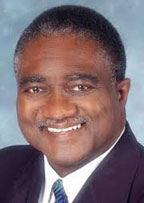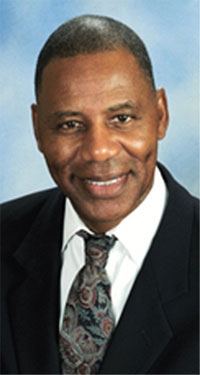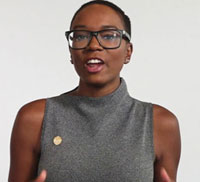
Black head coaches — College football’s last frontier
By George E. Curry, George Curry Media Columnist
This season’s national college football championship has been decided, but no one knows how much longer we must continue to wait until the head coaching ranks are no longer largely reserved for White males, even those who have been failures at other schools.
Although Blacks were 53.4 percent of Football Bowl Subdivision (FBS) players going into the 2015-16 football season, only 13 (10.2 percent) of the head coaches were African Americans, according to The Institute for Diversity and Ethics in Sport (TIDES) at the University of South Florida.
To make matters worse, Black and white coaches with similar records often face starkly different futures.
Writing in the Washington Post, Donald H. Yee wrote, “Last week, one of the few Black head football co-aches in the NCAA’s Football Bowl Subdivision, Ruffin McNeill at East Carolina University, was fired. His record was 42-34, along with a 30-18 conference record. The winning percentages, respectively, are 55 percent and 63 percent.
“Around the same time, college football writers were praising the University of Iowa for its patience with head coach Kirk Ferentz, who is being lauded for his performance this year. Ferentz has an overall winning percentage of 60 percent, and a conference winning percentage of 56 percent. Ferentz is in his 17th season at Iowa.
Before this current 12-1 season, his overall winning percentage was 58 percent – comparable to McNeill’s.
“Iowa, however, had to endure seasons where Ferentz won one, three and four games. McNeill never won fewer than five. As any knowledgeable college football fan knows, East Carolina’s budget is not even half of Iowa’s. McNeill’s salary at East Carolina wasn’t even within the top 60 in the country, while Ferentz has perennially been one of college football’s highest paid coaches.
“McNeill, clearly, was not treated with the same patience Iowa showed Ferentz.”
Bowling Green State University announced that it has hired Mike Jinks, an associate head coach at Texas Tech University, as its new head coach. With McNeill’s firing and the hiring of Jinks, there are now 10 Black head coaches among the 128 coaches in the Football Bowl Subdivision – less than 8 percent.
The 10 Black coaches are: James Franklin, Penn State; Darrell Hazell, Purdue; Curtis Johnson, Tulane; Mike London, Virginia; Derek Mason, Vanderbilt; Trent Miles, Georgia State; David Shaw, Stanford ; Charlie Strong, Texas; Kevin Sumlin and Willie Taggert, South Florida.
Many Black coaches labor for years as assistants before getting a chance at the top job. However, many White coaches who fall from grace quickly get second and third chances.
For example, Mike Price was fired for visiting a strip club before he could assume the job as head football coach at the University of Alabama. Still, he was able to land a job as head coach at the University of Texas-El Paso. After it was discovered that George O’Leary lied on his resume at Notre Dame, he was hired as head coach at the University of Central Florida. And Larry Eustachy’s problems at Iowa State included acknowledging that he was “a recovering alcoholic,” but that didn’t prevent him from getting the top job at Southern Mississippi.
Some Black coaches have been spectacular yet remain underrated. David Shaw, whose Stanford team trounced Iowa in this year’s Rose Bowl 45-16, is a perfect example.
Under Shaw, no Pac-12 program had more players drafted in the past four years, including Andrew Luck, the No. 1 overall pick of the 2012 NFL draft.
Stanford’s website catalogues the university’s recent success: “…three Pac-12 football championships in four years, five BCS/New Year’s Six bowls in a six-year span, all combined with an NCAA Graduation Success Rate (GSR) of 99 percent, leading all major-college football programs.”
Black coaches in the NFL are often underappreciated. If there were any questions about the skills of Black coaches, they should have been permanently put to rest in 2007 when the Indianapolis Colts, under Tony Dungy, squared off against Lovie Smith’s Chicago Bears in Super Bowl XLI. It was the first time two African American coaches met on football’s ultimate stage.
To its credit, the NFL established the Rooney Rule in 2003 that requires each NFL team to interview at least one minority candidate for each head coaching vacancy. In 2009, the requirement was expanded to include interviews for general managers and similar positions.
Unfortunately, universities don’t have a similar requirement.
But the problem extends beyond the sidelines, which might explain why it’s so difficult for Black coaches to get a fair shake.
As Richard Lapchick, director of The Institute for Diversity and Ethics in Sport, said, “This year’s increase is so discouraging. At a time when almost all colleges and universities say they emphasize diversity and inclusion as core values, the fact is that in the 2015-16 report, 89.8 percent of our presidents were white, 86.7 percent of our athletics directors were white, and 100 percent of our conference commissioners were white. In those positions, 78.9, 79.7, and 90 percent were white men, respectively. Overall, whites held 342 (88.8 percent) of the 385 campus leadership positions reported in this study, which was an increase from 88.2 percent in 2014. Whose America do these statistics reflect?”
George E. Curry is president and CEO of George Curry Media, LLC. He is the former editor-in-chief of Emerge magazine and the National Newspaper Publishers Association News Service (NNPA). He is a keynote speaker, moderator, and media coach. Curry can be reached through his Web site, georgecurry.com. You can also follow him at twitter.com/currygeorge, George E. Curry Fan Page on Facebook, and Periscope. See previous columns at http://www.georgecurry.com/columns.





Be the first to comment